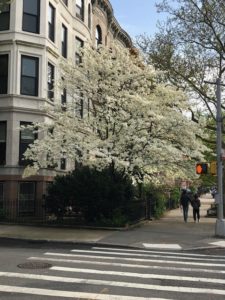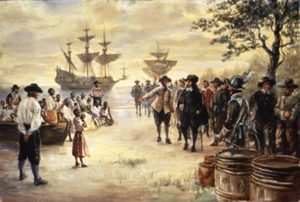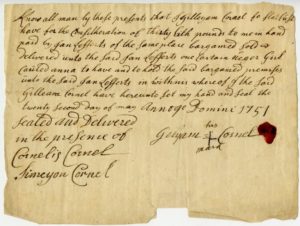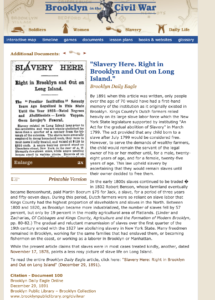
Honor the memories. Honor the people who were enslaved here. Honor the people who built Brooklyn. ‘Brooklyn Slavery #400years’ (Project 1619Brooklyn) aims to center New York’s dark secret. We invite everyone to come to our table for community reconciliation, truthtelling, and empathy. Let’s honor and express radical equality at this moment in history!
Invitation: Please join our ongoing dialogue series about slavery framed by history, storytelling, and the arts. Our formats will include multimedia, photography, video, podcasts, blog posts, creative tours, events, the arts, and public activities. Stay tuned for our animated film and new platform, in the works, that will take you on a multimedia tour of our legacy and influence.
We welcome your creative participation via culture and personal reflections that explore themes of slavery, freedom, racism, identity, inequity, memory, and more.
This special project honors the memory of the first Africans who were brought ashore in Jamestown, Virginia in 1619, a time now recognized the beginning of American slavery.


This community-based project recognizes ‘400 Years of Inequity’ from 1619-2019. Let’s re-frame the narrative about slavery here in the ‘Deep North,’ specifically in Brooklyn, New York.
Our project’s launch date is set for Indigenous People’s Day (aka Columbus Day) October 12, 2019, to shed new light on the Dutch invaders, their encounters with the local Lenape tribes, the importation of enslaved Africans, abolition, tribulations and triumphs.

“I grew up in Brooklyn and was taught that slavery was a Southern thing and that Brooklyn was filled with ‘settlers’ seeking religious freedom and abolitionists,” said Sylvia Wong Lewis, project director. “Some of those stories may be true. But a lot of our American slavery history chapters are missing. Today, 400 years later, it’s time to re-chart the American story. Let’s reset the narrative, develop new questions, attempt to find answers, and offer resources to learn more,” Wong-Lewis added.
Inspirations: We were inspired by the organization ‘400 Years of Inequity.’ They have called all people to come together in ‘radical equality,’ as stated in an excerpt from their website cover:
2019 will be the 400th Anniversary of the arrival of the first Africans to be sold into bondage in North America: in 1619 at Jamestown. We are calling on families, organizations, neighborhoods, and cities to observe the anniversary by telling their stories of oppression and resistance.
We must link arms in radical equality.
The wonderful Board of Trustees, staff and members of the Brooklyn Historical Society and their ‘In Pursuit of Freedom’ exhibit, that explores the anti-slavery movement from the end of the American Revolution to Reconstruction, continues to inspire many of us. Click here to learn more.
My own personal family history as a descendant of enslaved and enslaving people motivates and inspires me to seek truth-telling and empathy.
Slavery arrived in New Amsterdam (Brooklyn) and its environs with the first Dutch invaders (settlers). “While some residents owned their own slaves, others used company slaves provided by the Dutch West India Company, a trading company that governed the colony until 1655,” according to Brooklyn Historical Society documents. To read more, click here.
Would you like to share a family story? Do you want to be featured in our community dialogues–on a podcast, a video, or in a print story? We are scheduling interviews through September 2019. Do you want to write a guest blog post? We can send you guidelines. To participate in our ‘Brooklyn #400Years’ project, please state your interest in the contact form by clicking here.

